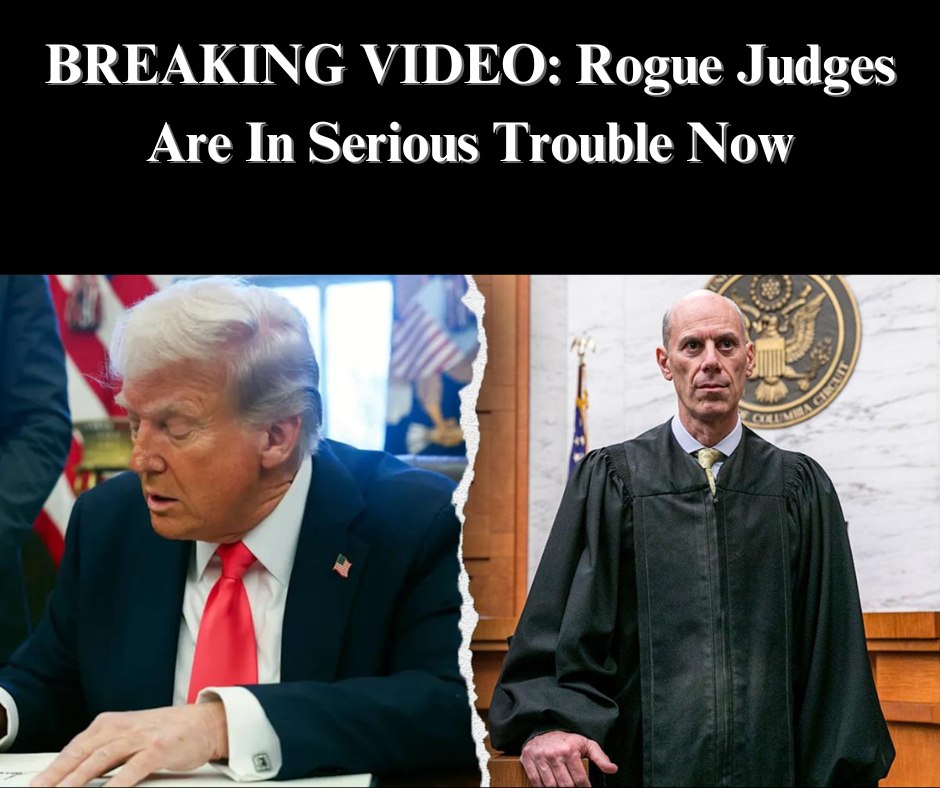A federal judge’s ruling to block President Donald Trump’s deportation order targeting Venezuelan gang members in the country illegally has ignited fury among conservatives, with legal experts warning it marks an alarming expansion of judicial power.
The criticism comes following U.S. District Judge James Boasberg’s ruling last week in which he issued a temporary restraining order to stop Trump from using the Alien Enemies Act to deport suspected gang members he has designated a terrorist organization.
The ruling has faced fierce criticism, with some calling for Boasberg’s impeachment, while Fox News legal analyst Greg Jarrett described the action as a blatant disregard for Supreme Court precedent.
“What’s so troubling about Boasberg’s restraining order is that he is defying the Supreme Court, which reviewed Harry Truman’s use of the Alien Enemies Act after World War II ended,” Jarrett explained during a network segment earlier this week. “The high court said that not only is the act constitutional under the law of the land, it is not subject to judicial review by any judge.”
“So when a president invokes it, no judge, no court can ever intervene—not even the Supreme Court—because Congress gave the president the exclusive power that is purely political to make decisions on national security and foreign policy,” Jarrett further explained. “Boasberg is duty-bound, as a lower court judge, to follow the ruling of the highest court—the Supreme Court—and butt out. And yet, he is brazenly ignoring Supreme Court precedent.”
WATCH:
Jarrett noted in a column posted online last week that a previous Supreme Court ruling found that not only is the Act constitutional, but that federal courts have no authority to intervene when a president invokes it.
“The AEA permits a president to order the arrest and removal without a court hearing of ‘alien enemies’ whenever there is a declared war or any ‘predatory incursion’ perpetrated, attempted or threatened against the United States,” Jarrett wrote.
“A predatory incursion is broadly defined as entry into the U.S. for purposes that are contrary to the nation’s interests or laws. The language gives a president broad latitude in his core duty to protect the safety and security of the citizenry,” he noted further, adding:
In 1948, the U.S. Supreme Court upheld Truman’s use of the AEA and ruled that the law itself was constitutional (Ludecke v. Watkins, 33 US 160). Importantly, the high court stated that a president’s decision under the Act “precludes judicial review of the removal order.” In other words, a judge cannot second-guess the president. The court explained, “The very nature of the President’s power to order the removal of all enemy aliens rejects the notion that courts may pass judgment upon the exercise of his discretion.”
The Supreme Court’s ruling embraced what is called the “political question doctrine.” That is, the federal courts may not intervene in presidential decision-making that is inherently political in nature, such as the conduct of foreign affairs and national security. By analogy, we do not permit judges to halt drone strikes or shut down intelligence operations.
“President Trump is utilizing every tool that the law affords to evict enemy aliens who pose a constant threat,” Jarrett continued, adding that the American people overwhelmingly support mass deportations of illegal immigrants — but especially those designated as criminal and terrorist threats.
“More than two centuries ago, Congress well recognized such peril. That is precisely why it passed a broad law granting to the President the sole authority to evict enemy aliens. 150 years later, the Supreme Court upheld that statute when it said, ‘This Alien Enemy Act has remained the law of the land, virtually unchanged since 1798,’” he noted further.
Jarrett concluded: “Lower court judges are duty-bound to follow Supreme Court precedent. On that basis alone, Judge Boasberg’s precipitous ruling is wrong as a matter of law.”
